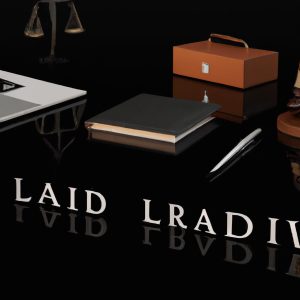Introduction
Article 81 Guardianship, also known as Adult Guardianship, is a legal process in the state of New York designed to protect and assist individuals who are deemed to be mentally or physically incapacitated and unable to make decisions for themselves. This important legal mechanism provides a framework for the appointment of a guardian to act on behalf of an incapacitated person’s best interests.
The Purpose of Article 81 Guardianship
The primary purpose of Article 81 Guardianship is to safeguard the well-being and assets of individuals who are unable to manage their personal and financial affairs independently. This can include elderly individuals suffering from cognitive decline, adults with developmental disabilities, or anyone facing circumstances where they are unable to make decisions in their own best interests.
Eligibility for Article 81 Guardianship
To initiate the Article 81 Guardianship process, certain criteria must be met:
1. Incapacitation
The individual in question must be proven to be incapacitated, meaning they lack the capacity to understand the consequences of their decisions.
2. Risk of Harm
There must be a clear demonstration that the incapacitated person is at risk of harm due to their inability to make sound decisions regarding their personal and financial affairs.
3. Less Restrictive Alternatives
The court will explore less restrictive alternatives to guardianship before appointing a guardian. These alternatives may include advanced healthcare directives, powers of attorney, or supported decision-making arrangements.
The Guardianship Process
The process of obtaining Article 81 Guardianship involves several key steps:
1. Petition Filing
An interested party, such as a family member or concerned individual, files a petition with the court, outlining the reasons for seeking guardianship and providing evidence of incapacity and potential harm.
2. Court Evaluation
The court appoints an evaluator, typically an attorney or mental health professional, to assess the alleged incapacitated person’s condition and provide a report to the court.
3. Preliminary Hearing
The court holds a preliminary hearing to determine whether there is enough evidence to proceed with the guardianship process.
4. Appointment of Counsel
If the court decides to move forward, it will appoint an attorney to represent the alleged incapacitated person’s interests. This attorney will advocate for the individual’s wishes and rights throughout the process.
5. Full Hearing
A full hearing is conducted where all parties present evidence and witnesses. The court ultimately decides whether guardianship is necessary and, if so, appoints a guardian.
6. Ongoing Monitoring
Once a guardian is appointed, they are responsible for making decisions in the best interests of the incapacitated person. The court provides oversight to ensure the guardian fulfills their duties appropriately.
Types of Article 81 Guardianship
There are several types of Article 81 Guardianship, depending on the specific needs of the incapacitated person:
1. Guardian of the Person
A Guardian of the Person is responsible for making healthcare and personal decisions on behalf of the incapacitated person.
2. Guardian of the Property
A Guardian of the Property manages the financial affairs and assets of the incapacitated person.
3. Guardian of the Person and Property
This type of guardian is responsible for both personal and financial decisions.
4. Temporary Guardian
A Temporary Guardian may be appointed for a limited duration or specific purpose, such as a medical procedure.
Conclusion
Article 81 Guardianship in New York plays a crucial role in protecting vulnerable individuals who cannot make decisions for themselves. It provides a legal framework to ensure their well-being and financial assets are safeguarded. If you believe someone you know may require Article 81 Guardianship or if you need assistance with the process, it’s essential to consult with experienced legal professionals who specialize in elder law and guardianship matters.







